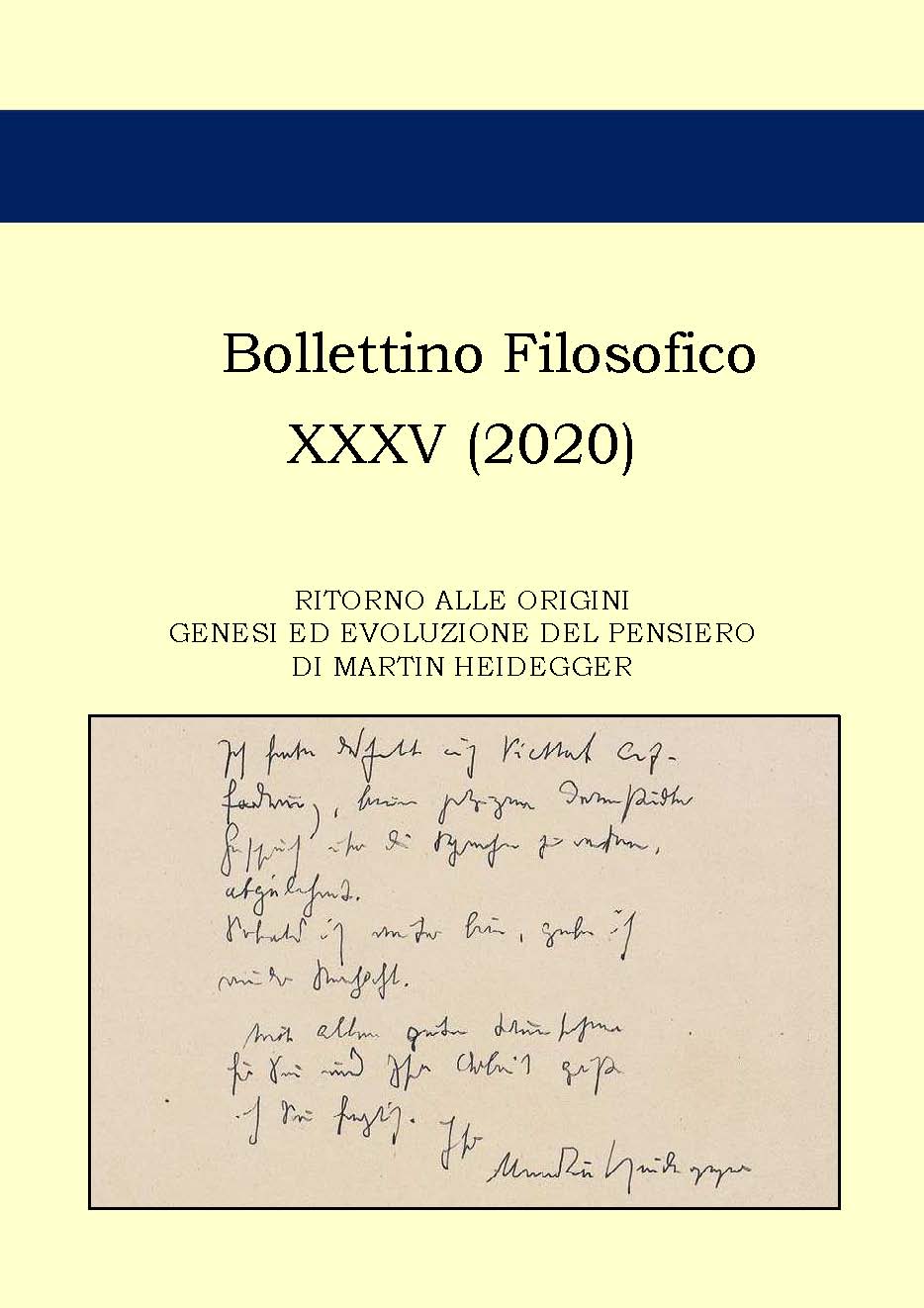Heidegger lettore di Agostino: verso un’ermeneutica della fatticità, attraverso l’esperienza della vita religiosa
Abstract
The aim of this article is to show how the young Heidegger, in his summer course of 1921, discovers in Augustine, while interpreting Book X of the Confessions, a proto-phenomenologist and hermeneuticist of the factical life (or facticity). We will show that Augustine’s description of Christian religious life offers Heidegger concrete material for the elaboration of his own indicative-formal interpretation of existence, itself subordinated to a strict “methodological atheism”.
Keywords: Angst, Augustine, Authenticity, Existentials, Formal Indication
Downloads
Bollettino Filosofico pubblica in internet, ad accesso aperto, con licenza:
|
|
CCPL Creative Commons Attribution |
L'autore conserva il copyright sul suo contributo, consentendo tuttavia a chiunque "di riprodurre, distribuire, comunicare al pubblico, esporre in pubblico, rappresentare, eseguire e recitare l'opera", purché siano correttamente citati l'autore e il titolo della rivista. L’autore, al momento della proposta di pubblicazione, è inoltre tenuto a dichiarare che il contenuto e l’organizzazione dell’opera è originale e non compromette in alcun modo i diritti di terzi, né gli obblighi connessi alla salvaguardia di diritti morali ed economici di altri autori o di altri aventi diritto, sia per testi, immagini, foto, tabelle, sia per altre parti di cui il contributo può essere composto. L’autore dichiara altresì di essere a conoscenza delle sanzioni previste dal codice penale e dalle leggi speciali per l’ipotesi di falsità in atti ed uso di atti falsi, e che pertanto Bollettino Filosofico è esente da qualsiasi responsabilità di qualsivoglia natura, civile, amministrativa o penale, e sarà dall'autore tenuta indenne da qualsiasi richiesta o rivendicazione da parte di terzi.
